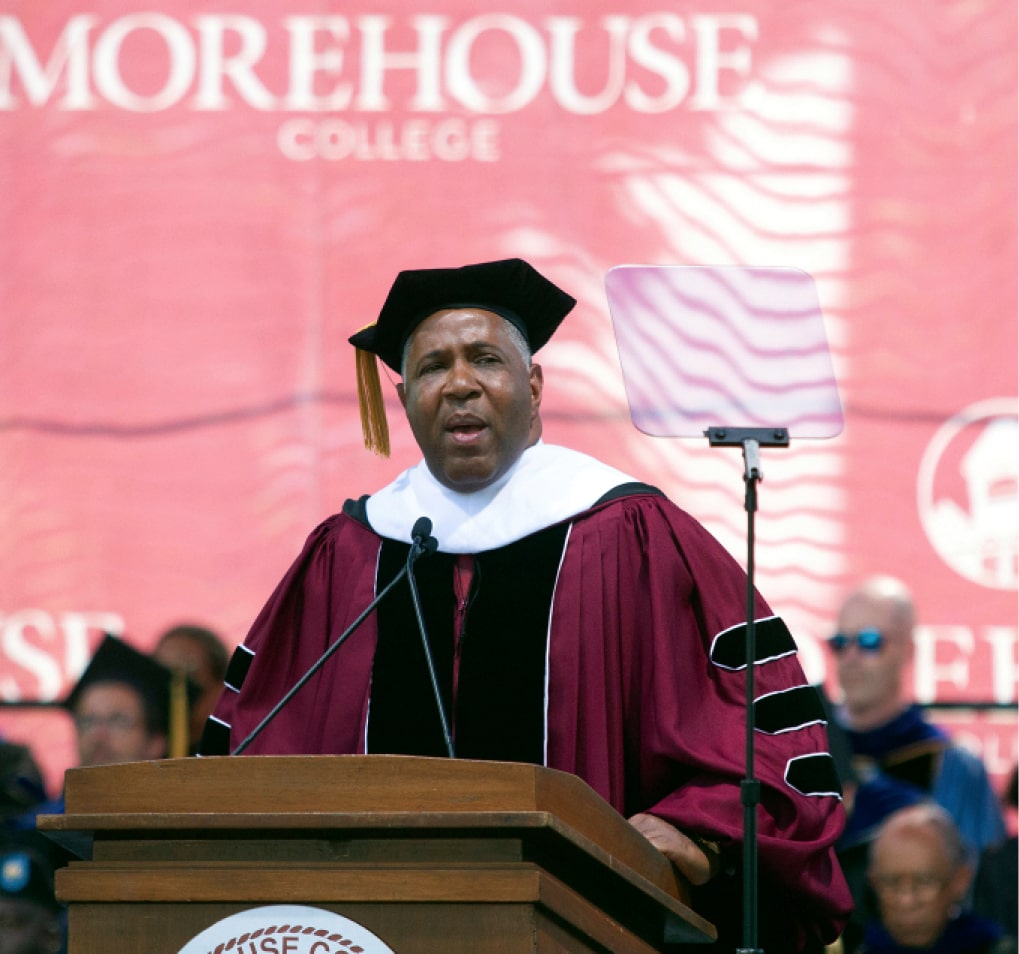- A digital divide has developed over the past few years as high-speed internet access has been rolled out more slowly for certain populations.
- Bridging the digital divide is a priority for leaders as research shows that socioeconomic, race and gender inequities are reflected in this digital gap.
- There are many ways to bridge the digital divide; each focuses on different drivers of digital inequity.
Table of Contents
Digital connectivity has become a vehicle for progress as our professional and personal lives increasingly rely on it. As our dependency on access to and an understanding of technology has grown, it has become evident that some communities have been left behind when it comes to the digital economy. This disparity, also known as the digital divide, exacerbates existing inequities in the communities that have been overlooked. For that reason, bridging the digital divide has started to become a priority for business and government leaders.
Ahead, we further explore what the digital divide is and why bridging the digital divide is critical. Additionally, we discuss ways we can bridge the digital divide by addressing various drivers of digital inequity.
What Is a Digital Divide?
The digital divide represents the inequity in high-speed internet connectivity among different populations. Many vital aspects of our lives require a reliable digital connection and tech devices. In addition to that, developing digital literacy skills is necessary to participate in the global economy. For this reason, populations with limited or no broadband access face challenges when accessing healthcare, applying for jobs and completing schoolwork.
Locations with limited high-speed internet access are commonly referred to as connectivity deserts or broadband deserts. A few other terms people use are: digital inequity, broadband access gap and internet inequality.
One of the many reasons why the digital divide is a problem is that it reinforces existing inequities in society. For example, a 2024 report from the Pew Research Center while 95% of adults making $100,000 have home broadband internet, only 57% of people who make less than $30,000 per year have access to broadband at home. Since internet access and digital literacy skills are vital in the digital workplace, these disparities can increase the wealth gap rather than help reduce it.
Why Is Bridging the Digital Divide Important?
Bridging the digital divide is necessary to create equal opportunities in the digital economy. With generative artificial intelligence (AI) leading another wave of digital transformation, reducing the gaps in digital access has become even more urgent.
Lacking or limited access to high-speed internet can affect people’s access to critical sectors, including:
- Healthcare
- Education
- Economic opportunity
- Digital literacy
To address these issues, government officials and nonprofit organizations are working to make high-speed internet more affordable and accessible. These actions are especially important for people who live in rural areas, where digital infrastructure is lacking. However, even people in urban areas face connectivity challenges. For these reasons, it is necessary to address this issue head-on with innovative and inclusive approaches.
Ways to Bridge the Digital Divide
Many examples of the digital divide show the importance of creating digital inclusion across races, genders and socioeconomic levels. They range from access and affordability to more foundational elements like digital infrastructure.
Improving Infrastructure
Improving digital infrastructure is the first step in creating equal access to digital technology. Without access to broadband or high-speed internet (like 5G), communities cannot develop digital skills and engage with others in the digital economy. That is why universal access to broadband has started to become a higher priority for government and community leaders. With adequate infrastructure in place, digital ecosystems can flourish, helping overlooked groups join to gain access. Closing the gap in digital access can usher in economic progress, create jobs and other opportunities in local communities.
Securing Affordable Internet Access
Once digital infrastructure is in place, bridging the digital divide requires access. Income is a significant barrier to digital access, so making high-speed home internet services affordable is a logical next step. The Federal Communications Commission developed The Affordable Connectivity Program to help bridge the digital gap in the U.S. In 2024, the White House reported that 25% of households participating in the program were Black and another 25% were Latino.
Improving Digital Literacy Training
Making internet access available to communities that lack it will create more economic and educational opportunities. However, students must develop digital literacy skills to thrive in the digital economy. Digital literacy is a measure of competency when using connected devices. It goes beyond just being able to use technology and includes being able to identify reliable information, communicate effectively with others online and promote digital citizenship. In areas that lack digital access, there is a lack of digital literacy training and resources available for students and teachers.
Properly Equipping Schools and Libraries
Bridging the digital divide in education is necessary to ensure future generations have equal access to opportunities. According to 2021 research by McKinsey, 82% of Historically Black Colleges and Universities (HBCUs) are located in broadband deserts. To help, organizations like Student Freedom Initiative (SFI) are committed to increasing their access to the digital economy.
Additionally, SFI is an organization that is dedicated to providing eligible students at participating HBCUs and other Minority Serving Institutions (MSIs) with the academic, professional and financial support they need to succeed. Robert F. Smith is proud to be the Chairman of SFI. To combat inequities in digital access, SFI is targeting its four main drivers:
- Infrastructure
- Access
- Affordability
- Digital literacy
Equipping libraries and schools with digital literacy resources is an effective way to bridge the digital divide in education. Research shared in 2023 from the Texas State Library and Archives Commission indicates that state library staff provided 84% of the state’s digital literacy training.
Making Mobile More Accessible
Equipping homes, schools, libraries and universities with high-speed internet service is crucial. But mobile connectivity is also necessary to bridge the digital divide. 5G mobile networks are a disruptive technology, providing less delay (latency) and more bandwidth to connected devices.
Mobile networks are a key enabler to power innovations like Internet of Things (IoT), used in healthcare for remote patient monitoring. However, not every area has access to 5G, which limits people’s ability to apply this technology in business and everyday life. Since 5G is a part of creating a connected technology ecosystem, making mobile more accessible is another step in closing the global digital divide.
Creating Public-Private Partnerships
Many government programs have aimed to increase digital equity via access to high-speed internet services for populations living in connectivity deserts. In 2021, Congress passed a Bipartisan Infrastructure Law, providing $42 billion to establish the Broadband Equity, Access and Deployment (BEAD) Program. It will help expand broadband access, infrastructure and adoption in the U.S. This federal grant program is one of many ways the public and private sectors are working toward digital inclusion.
Learn more about how Smith is working on bridging the digital divide by following him on LinkedIn.







